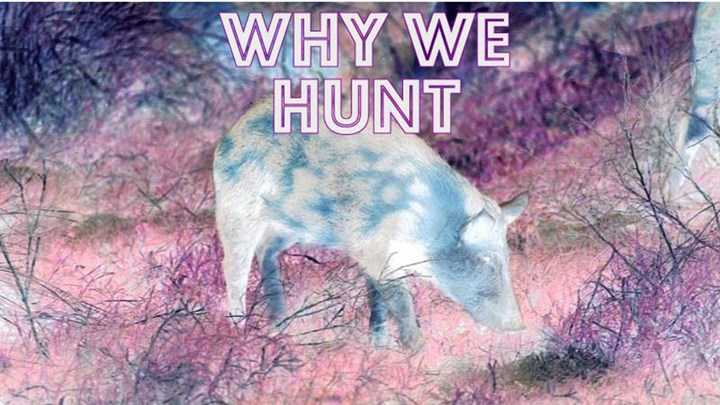
by Keith Wood - Wednesday, October 16, 2019

If hunters and the outdoor industry have a fault, it is that we all too often preach to the choir. We make arguments in support of hunting that, all too often, fall only on the ears of those who already hunt. I myself am equally guilty: Out of the dozens upon dozens of hunting articles that I’ve written, only a handful have appeared in places where the non-hunting public might stumble across them. Sometimes the best ambassadors are not the experienced hunters with decades in the woods, but the newly converted. The honesty and genuine enthusiasm expressed by such individuals brings a credibility that can’t be faked and stands a better chance of resonating with non-hunting audiences.
In a recent article in the online edition of National Review, writer Jordan Sillars conveys his own first-time hunting experience and makes a case for broadening our tent to give the practice of hunting long-term public sustainability. Sillars makes a cohesive argument for attracting hunters from outside of our own traditional demographics. By promoting the virtues of hunting on places like college campuses and farmers markets, state wildlife agencies have broadened the appeal of hunting beyond our own ranks, Sillars says. “They’ve found hunters who hunt not for the trophy or the bragging rights but for the experience of connecting with nature, harvesting their own food, and gaining a better understanding of life and death… If those individuals can be brought on board in a way that respects their unique reactions to killing an animal, hunting in the U.S. stands a chance of a comeback.”
"If those individuals can be brought on board in a way that respects their unique reactions to killing an animal, hunting in the U.S. stands a chance of a comeback.”
In a piece that is both honest and self-deprecating, Sillars recounts the taking of a feral hog that was raiding acorns on his father-in-law’s property in Texas, where hogs are a multi-million-dollar problem. Before that night, Sillars had never killed anything larger than a bird. He tells not only of the thrill of the event and the satisfaction of putting meat on the table, but of the sadness associated with taking the life of a living, breathing creature. As a self-described “child of Walt Disney,” Sillars makes a point that many of us often ignore or gloss over: There is an inherent uncomfortability with the taking of a life, even that of a humble pig.
If we are to attract non-hunters into our fold, whether it be their mere public support or actual participation in hunting, we must be honest. The overwhelming majority of Americans have never seen their food die. Death can and should be quick, ethical and “cruelty-free,” but it is still death. It’s often bloody and, even when it is instantaneous, an animal’s death usually invokes some type of emotional response to those present. When things go wrong, and they will if you hunt enough, the resulting suffering can disturb even the most experienced hunters. We shouldn’t try to hide this and insult the intelligence of the non-hunter, it is an unavoidable and honest part of the act of putting meat on the table.
Hunting has a great story to tell, particularly in an environment where Americans are increasingly interested in where their food comes from. The idea of managing wildlife numbers through a system that financially supports its own regulatory agencies is sound policy. Add in the fact that the result of a successful hunt is large amounts of free-range, organic, sustainably-killed meat, and any rational human can see the benefits. And, oh by the way, hunting gets us outdoors, out of the cities and the virtual world in which so many young people exist and into the real world. Hunting can be a physically and mentally challenging exercise that takes us out of the artificial environment that we have created and puts us back where we belong.
Sillars is right, we need to broaden our tent, and we won’t do so by glossing over the reality of death.
Sillars is right, we need to broaden our tent, and we won’t do so by glossing over the reality of death. Hunting is a noble, ethical and sometimes even transcendent practice but it can, at times, be ugly. People understand this and can live with it, but if we are to be successful in recruiting new hunters, we must tell the whole truth.
About the Author: Keith Wood is a former National Rifle Association (NRA) Institute for Legislative Action State Liaison, a regular contributor to NRA Publications and NRAhunting.com as well as other outdoor media outlets. He lives in Alabama with his wife and three children.
Follow NRA Hunters' Leadership Forum on Twitter @HuntersLead.
E-mail your comments/questions about this site to:
[email protected]
Proudly supported by The NRA Foundation and Friends of NRA fundraising.
